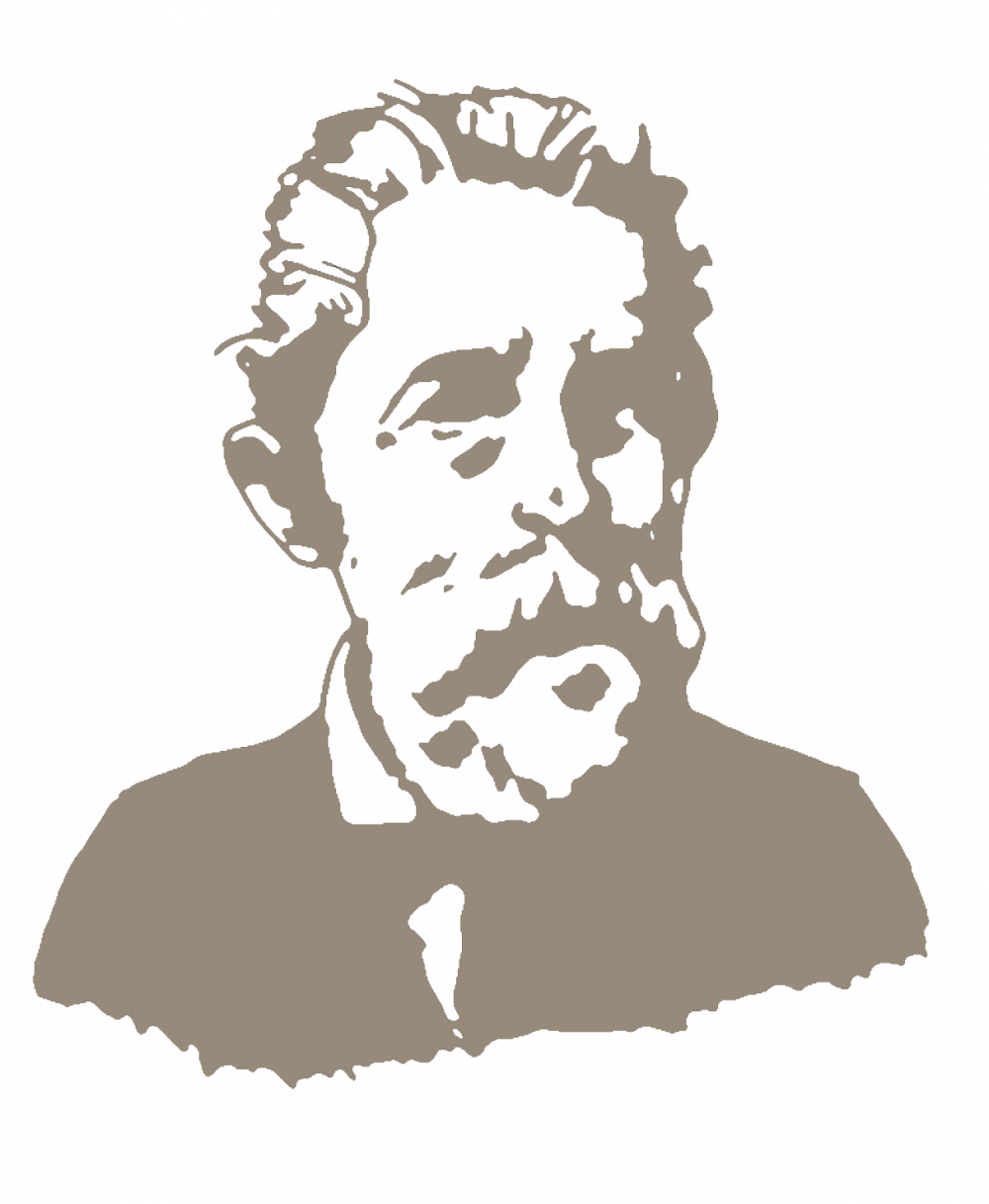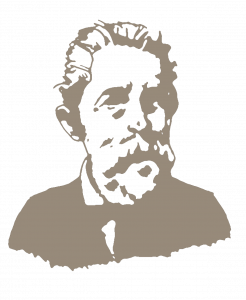by Andrea Bernardini
"Tuscany Today" 18 March 2012 - Pdf with additional contents
It is the morning of 4 September 1878 when Monsignor Sebastiano Zorzi, in the archpriest church of Pieve di Soligo, celebrates the wedding of Giuseppe Toniolo and Maria Schiratti.
The two met in the village thanks to Maria's brothers, Gaetano and Renato Schiratti, fellow students of Toniolo at the University of Padua.
«Giuseppe - reconstructs the master Pietro Furlan, historian of Toniolo, guide of our virtual journey in the places of the venerable - in those years he was often a guest of the Schiratti brothers in Pieve di Soligo, especially during the summer. It is in one of these encounters that he sees for the first time and falls in love with Maria, seven years his junior. In order to get to know each other more deeply and attend the Schiratti house, Toniolo asks the parish priest of Soligo, Sebastiano Zorzi, to interpose his good offices with Maria Schiratti's father, Antonio, mayor of Pieve di Soligo from 1840 to 1872. frequentation of the Schiratti house a sincere and profound love is born between the two. After more than four years of engagement, Toniolo asks his father Antonio for Maria's hand. And he gladly gives it to her ».
The marriage of Giuseppe Toniolo and Maria Schiratti represents, for the town of Pieve di Soligo, a real event, especially for the prestige enjoyed by the father of the bride. Many show up with Giuseppe's father-in-law with dedications and printed addresses.
"The wedding witnesses - reconstructs Pietro Furlan - will be Count Marco Giulio Barbo Vailler, mayor of Pieve di Soligo from 1872 to 1885, and the lawyer Giuseppe Bernardi". "The bride received the blessing in the Mass" reads the marriage certificate, kept in the Toniolo house in Pisa.
The beautiful religious ceremony is followed by refreshments at the Schiratti house, then the couple takes leave of their relatives and friends for the traditional honeymoon.
Prepared with that meticulousness that the professor is used to using in all his things, the stages of the journey seem to herald the program of his life. The couple stops four days in Rome, to visit the catacombs, the amphitheaters and circuses, the basilicas, finally the Vatican, where Mary and Joseph participate in a papal audience (although not privately). To take part in it, Toniolo makes a request to the chamber master of the ponterice, omitting however the title of university professor, since that robe for an audience with the Holy Father is not allowed in the etiquette of the time.
Satisfied the "professor", convinced as he is that "going to Rome without seeing the Pope is like going to Heaven without seeing God".
From Rome to Orvieto. In a postcard to his brother-in-law Renato Schiratti, Giuseppe Toniolo declares that he was attracted to this city by the desire to see the Duomo, a true miracle of art and above all a monument of the Eucharist. That Eucharist which will play a fundamental role in his life and for which he will always know, on every occasion, to carve out a space of time.
Last stop of the journey, Assisi.
Children
the year following the wedding Giuseppe and Maria Toniolo are already in Pisa. Seven children will be born here, “of which three flew to heaven at an early age. The eldest son Antonio - says Pietro Furlan - marries another little girl, Augusta Chisini, with whom he has five children: Giuseppe, Maria, Alberto, Gabriella and Gianfranco. They are all dead now. Maria, widow Perricone, died on February 5, 2012 at the age of ninety-nine: she was the last granddaughter of Toniolo. And she donated a blanket that belonged to her grandfather Giuseppe to the parish of Pieve di Soligo.
A small piece of this blanket, as you know, while the faithful began a novena to beg the intercession of the venerable, was placed under the pillow of the miraculous Francesco Bortolini: reduced to a pharmacological coma, the young man was miraculously cured. And now he is in excellent health.
Antonio is university professor in Geography and Natural Sciences in Pisa and Bologna. He died in 1955.
Elisa, another daughter of Toniolo, marries Luigi Ferrari, director of the Marciana library in Venice; and has three children: Andrea, Maria Cecilia and Agostino, who becomes bishop. Monsignor Agostino Ferrari Toniolo passed away five years ago.
Emilia, the closest to the soul of the venerable, becomes a cloistered nun, with the name of Maria Pia, in the Monastery of the Visitation in Treviso. And, five years and four months after his profession, he dies at just 28 years and ten months.
Teresa, the last daughter of Toniolo, lost her boyfriend, the lawyer Giovanni Corna Pellegrini sul Carso, remains in the family in Pisa and dies in 1970 ».
How much time did Giuseppe Toniolo dedicate to his family?
«As soon as he is free from university teaching and conferences, Toniolo spends all his time with his family. He is strict with his children when it comes to their acquaintances, their education and school training. Antonio himself teaches philosophy lessons to his firstborn son, fearing that the tempting ferments of secularism and materialism will mislead his intellect, before he reaches a sufficient capacity for criticism and discernment. But with children he is also playful at home: he often participates in their games and amuses them with his jokes and with his imitations of the characters from the book of Pinocchio and the book "Heart" ».
On travels he is the most expert guide, the "cicerone".
But above all he exercises an almost priestly spiritual paternity among his family members. On religious solemnities or on the occasion of name days, he wishes the whole family to celebrate and sanctify the feast with him, participating in Mass and receiving Holy Communion. On returning from short trips, he usually says to his family and friends: "Let's go and say good evening to the Master of the house!"
In trials and pain he offers an extraordinary witness of faith in God: on the premature death of his parents, of three young children and of his daughter Emilia consecrated to the Lord and his favorite, he intones the "Magnificat" and the "Te Deum".



